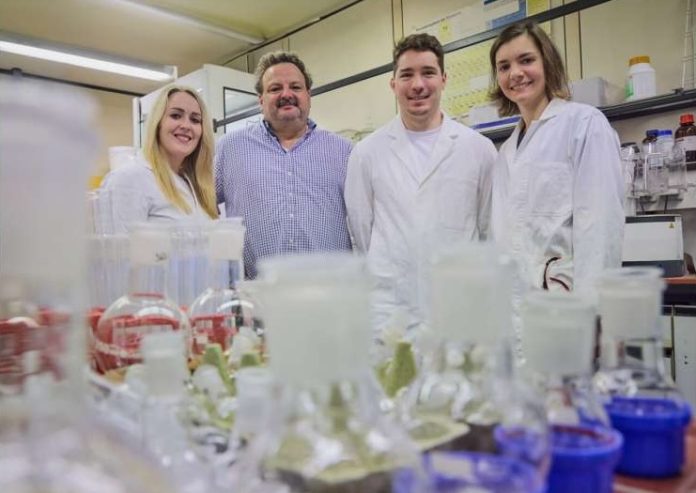
Chemists at the University of Bonn have achieved a significant breakthrough in the synthesis of polypropionate building blocks, crucial components for creating life-saving drugs, including reserve antibiotics for combating drug-resistant bacterial infections.
For the first time, they have developed a method that simplifies the production of all eight possible variants of these building blocks from a single starting material.
This achievement, detailed in the Angewandte Chemie International Edition, could greatly enhance the efficiency and sustainability of drug manufacturing.
Polypropionates are valuable for their role in nature and medicine due to their chiral nature.
Chirality, or “handedness,” refers to the existence of two mirror-image forms of a molecule that, despite having the same molecular formula, exhibit different properties.
This characteristic is particularly important in pharmaceuticals, where the effectiveness and safety of a drug can depend on using the correct chiral form.
Traditionally, synthesizing these chiral polypropionates to achieve the desired specificity and purity for drug development has been a complex and time-consuming process.
However, the team led by Professor Andreas Gansäuer at the University of Bonn’s Kekulé Institute for Organic Chemistry and Biochemistry has introduced an innovative approach that streamlines this process.
By starting with an alcohol, the researchers have developed a method that produces eight different isomers, or variants, of polypropionate building blocks.
They achieve this through a combination of two known methods and a novel application of hydrosilylation. The process involves creating mirror-image versions of an epoxide from the alcohol, which then undergo further modifications to produce the eight distinct forms.
One of the most significant advantages of this new method is its operational simplicity.
Unlike traditional processes that may require very low temperatures and precious metals as catalysts, Gansäuer’s technique can be performed at room temperature and does not rely on expensive catalysts, making it more environmentally friendly and sustainable.
The implications of this research extend far beyond the academic sphere. In drug manufacturing, identifying the most effective chiral form of a substance often involves screening thousands of isomers.
The ability to efficiently produce all eight variants of polypropionate building blocks from a single starting material not only saves time and resources but also increases the likelihood of discovering effective drug compounds.
This breakthrough represents a significant step forward in the field of organic chemistry and drug development.
By making the synthesis of chiral polypropionates more accessible, researchers and pharmaceutical companies can accelerate the development of new medications, including those critical for treating infections caused by drug-resistant bacteria.
The research findings can be found in Angewandte Chemie International Edition.
Copyright © 2024 Knowridge Science Report. All rights reserved.



